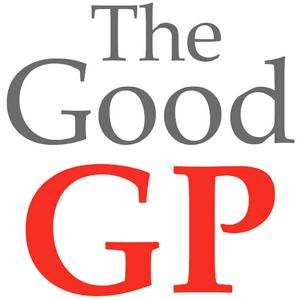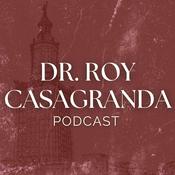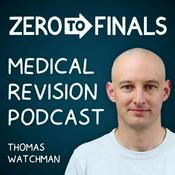255 episodes
- In this episode of The Good GP, host Dr Sean Stevens speaks with Professor Nick Zwar, Chair of the RACGP Travel Medicine Specific Interest Group, to discuss the state of travel medicine in Australia post-COVID-19 pandemic.
Professor Zwar outlines how the pandemic led to a sudden halt in international travel and impacted travel medicine practice. Many have adapted by shifting their focus back to general practice, advising patients stranded overseas, and planning for a resumption of travel. He also notes the practical implications, such as unused vaccine stock and the adoption of telehealth.
Also discussing the resumption of international travel, with Australians returning to pre-pandemic travel levels, including higher-risk activities like cruise ship travel. They observe that despite the risks of infectious diseases, most patients are eager to travel and may not be as concerned about COVID-19 as practitioners might expect.
Looking ahead, Professor Zwar identifies several challenges in travel medicine. These include changing patterns of infectious diseases (notably respiratory infections, dengue fever, Japanese encephalitis, and measles), emerging threats like monkeypox (Mpox), and the increasing prevalence of antimicrobial resistance affecting management of traveler's diarrhoea. He also highlights the complexity of advising immunocompromised travellers, particularly those on biological therapies.
The Good GP Podcast is a proud member of the Talking HealthTech Podcast Network - the premier audio destination for cutting-edge insights and thought leadership in healthcare delivery, innovation, digital health, healthcare ICT, and commercialisation. Learn more at www.talkinghealthtech.com/podcast/network
If you have any questions or would like to contact The Good GP, send an email to [email protected]. Visit www.thegoodgp.com.au for previous episodes and more information. You can also find us on our instagram page: @thegoodgppodcast. Follow us for more updates! - In this episode of The Good GP, Dr Krystyna de Lange is joined by Anisa Varasteh, a clinical sexologist, psychotherapist, and former president of the Society of Australian Sexologists, to discuss the topic of female sexual dysfunction and its management in general practice.
Anisa Varasteh provides a thorough overview of the multifaceted nature of female sexual dysfunction, emphasising the complex interplay between biological, psychological, relational, and social factors. Highlighting the impact of chronic stress, nervous system overload, and the relational context on sexual function. Psychological factors such as anxiety, depression, trauma, and body image concerns are explored, as well as the influence of cultural myths and social conditioning on female sexuality across the lifespan.
Anisa identifies everyday factors influencing desire and arousal, including sleep deprivation, mental load, lack of pleasure outside of sex, unresolved grief, and body image issues. She shares practical strategies for GPs when supporting patients, such as normalising fluctuations in desire, exploring the biopsychosocial context, shifting the focus towards pleasure and connection, and promoting nervous system regulation. Early referral to sexologists or related professionals is suggested, as is the value of providing patients with language and frameworks to have open conversations with their partners.
The episode concludes with strategies for empowering patients to discuss their sexual wellbeing without shame or guilt and the benefits of reframing intimacy outside the goal of intercourse.
Potential questions to use in assessment of sexual function:
What is the concern, and what does it mean to the patient?
Is there distress around it?
How long has it been present?
What is the impact on their life or relationship?
In what contexts is it not present?
Have they sought help before?
How is their general health and mental wellbeing?
How do they feel in their relationship?
Why is this a concern now?
----
The Good GP Podcast is a proud member of the Talking HealthTech Podcast Network - the premier audio destination for cutting-edge insights and thought leadership in healthcare delivery, innovation, digital health, healthcare ICT, and commercialisation. Learn more at www.talkinghealthtech.com/podcast/network
If you have any questions or would like to contact The Good GP, send an email to [email protected]. Visit www.thegoodgp.com.au for previous episodes and more information. You can also find us on our instagram page: @thegoodgppodcast. Follow us for more updates - In this episode of This Could Save Your Life Podcast, hosts Dr Catherine Bourke and Dr Anna Mullins provide an overview of preconception care, and the key considerations for GPs when supporting patients who are planning a pregnancy.
Key discussion points include:
Initial Assessment: Consider age, reproductive history, and duration of attempts to conceive. Referral for fertility investigation recommended for women over 35 trying for 6 months, or any age trying for 12 months, or women aged 40+.
Review of Medical History: Assess chronic conditions: diabetes, hypertension, cardiovascular disease, epilepsy (and medication management), thyroid disease, polycystic ovarian syndrome, and asthma.
Medication Management: Identify and remove teratogenic medications prior to conception (e.g., isotretinoin, some weight loss medications). Recognise medications that are safe/necessary during pregnancy (such as inhalers for asthma).
Dietary Advice: Encourage a balanced diet rich in vegetables, lean meats, fruits, grains, nuts, and dairy; minimise processed foods.
Alcohol Consumption: Advise abstinence from alcohol in the period of actively trying to conceive and during early pregnancy.
Lifestyle Modification: Smoking cessation strongly recommended for both partners to improve fertility and prevent harm to the fetus and child.
Pre-Pregnancy Investigations: Which include routine tests: full blood count, iron studies, electrolytes, liver and kidney function. Check immunity to rubella and varicella; advise vaccination if necessary before pregnancy.
Consultation Advice: Recommending dedicated, extended preconception consultations to address medical, lifestyle, and individual patient factors.
Links & Resources:
For information about listeria is: https://www.betterhealth.vic.gov.au/health/healthyliving/food-poisoning-listeria
For information about fragile x: https://www.cdc.gov/fragile-x-syndrome/index.html
This Could Save Your Life Podcast is under The Good GP podcast, a proud member of the Talking HealthTech Podcast Network - the premier audio destination for cutting-edge insights and thought leadership in healthcare delivery, innovation, digital health, healthcare ICT, and commercialisation. Learn more at www.talkinghealthtech.com/podcast/network
If you have any questions or would like to contact The Good GP, send an email to [email protected]. Visit www.thegoodgp.com.au for previous episodes and more information. You can also find us on our instagram page: @thegoodgppodcast. Follow us for more updates! - In this episode of The Good GP podcast, Dr Ramya Raman, Vice President of the RACGP and GP, is joined by Dr Sean Stevens, Chair of the RACGP Digital Health and Innovation Specific Interest Group, and Dr Amandeep Hansra, Deputy Chair and esteemed digital health expert, for a discussion about the upcoming RACGP Hackathon event.
Beginning with the introduction of what a hackathon is, particularly in the context of general practice. Dr Amandeep describes hackathons as intensive, collaborative events where clinicians, technologists, and entrepreneurs come together to solve real-world problems faced in general practice and develop practical solutions.
The unique focus of the RACGP Hackathon on clinically-relevant issues, highlighting the importance of clinician-led innovation. Reflecting on previous events, including the significant outcomes for past participants such as product development, enhanced professional networks, and entry into healthcare innovation accelerator programs.
Dr Sean mentions who should consider applying, emphasising that the hackathon is not only for those with technical expertise but is open to any general practitioners interested in innovation, regardless of experience in technology or entrepreneurship.
They address the broader challenges facing general practice, including workforce shortages, burnout, patient complexity, and emerging disruptive technologies. Discussing the role of innovation and digital solutions in maintaining the central importance of general practice and improving patient care.
Key event information:
The RACGP Hackathon will be held in Sydney from 13th to 15th March, 2026
Applications close on 29th January, 2026
Successful applicants will have the opportunity to compete for a significant cash prize (to be announced) and potential entry into an innovation accelerator program.
Join the RACGP Hackathon here: https://hackathon26.au/
The Good GP Podcast is a proud member of the Talking HealthTech Podcast Network - the premier audio destination for cutting-edge insights and thought leadership in healthcare delivery, innovation, digital health, healthcare ICT, and commercialisation. Learn more at www.talkinghealthtech.com/podcast/network
If you have any questions or would like to contact The Good GP, send an email to [email protected]. Visit www.thegoodgp.com.au for previous episodes and more information. You can also find us on our instagram page: @thegoodgppodcast. Follow us for more updates! - In this episode, host Dr Maria Li is joined by Dr Parth Shah, an adult and paediatric ophthalmologist based in Canberra and Sydney, to discuss paediatric squints, also known as paediatric strabismus.
Beginning with an overview of why paediatric squints can seem daunting for general practitioners, and the importance of a systematic approach to assessment. Outlining GPs responsibilities when encountering a child with possible eye misalignment: diagnosing whether a true squint or pseudo-squint is present, assessing visual function, and determining the urgency of referral to a specialist.
Practical steps for eye examination in babies, particularly at the routine six-week check. Dr Parth Shah offers guidance on inspecting eye alignment, performing the corneal reflex test using a pen torch or ophthalmoscope, and checking the red reflex to rule out conditions such as congenital cataract.
As babies develop, the use of dynamic tests such as the cover test becomes more reliable, generally from three to six months of age, allowing for assessment of fixation and equal visual development between the eyes. GPs are advised to initiate urgent referral at any stage if there is concern about poor visual function, abnormal red reflex, or significant limitations in eye movement.
Further exploring referral processes, noting that detailed documentation of GP observations, supported by photos or videos from parents, greatly assists ophthalmology triage and assessment.
Links & Resources:
http://www.squintclinic.com/
https://www.schn.health.nsw.gov.au/eye-problems-children-factsheet
https://www.aapos.org/resource-catalog/educational-resources
https://medicinetoday.com.au/mt/2017/april/feature-article/assessing-eye-problems-children – GPs can access this article via a free online Medicine Today subscription.
The Good GP Podcast is a proud member of the Talking HealthTech Podcast Network - the premier audio destination for cutting-edge insights and thought leadership in healthcare delivery, innovation, digital health, healthcare ICT, and commercialisation. Learn more at www.talkinghealthtech.com/podcast/network
If you have any questions or would like to contact The Good GP, send an email to [email protected]. Visit www.thegoodgp.com.au for previous episodes and more information.
More Education podcasts
Trending Education podcasts
About The Good GP
The Good GP, the education podcast for busy GPs; brought to you by Dr Tim Koh, Dr Krystyna DeLange and Dr Sean Stevens.
The Good GP is a proud member of the Talking HealthTech Podcast Network - the premier audio destination for cutting-edge insights and thought leadership in healthcare delivery, innovation, digital health, healthcare ICT, and commercialisation.
Disclaimer: The Good GP podcasts are for informational purposes only and do not constitute medical advice. Always seek the advice of a specialist GP or other qualified health provider with any questions you may have regarding a medical condition.
Podcast websiteListen to The Good GP, The Mel Robbins Podcast and many other podcasts from around the world with the radio.net app

Get the free radio.net app
- Stations and podcasts to bookmark
- Stream via Wi-Fi or Bluetooth
- Supports Carplay & Android Auto
- Many other app features
Get the free radio.net app
- Stations and podcasts to bookmark
- Stream via Wi-Fi or Bluetooth
- Supports Carplay & Android Auto
- Many other app features


The Good GP
Scan code,
download the app,
start listening.
download the app,
start listening.
































